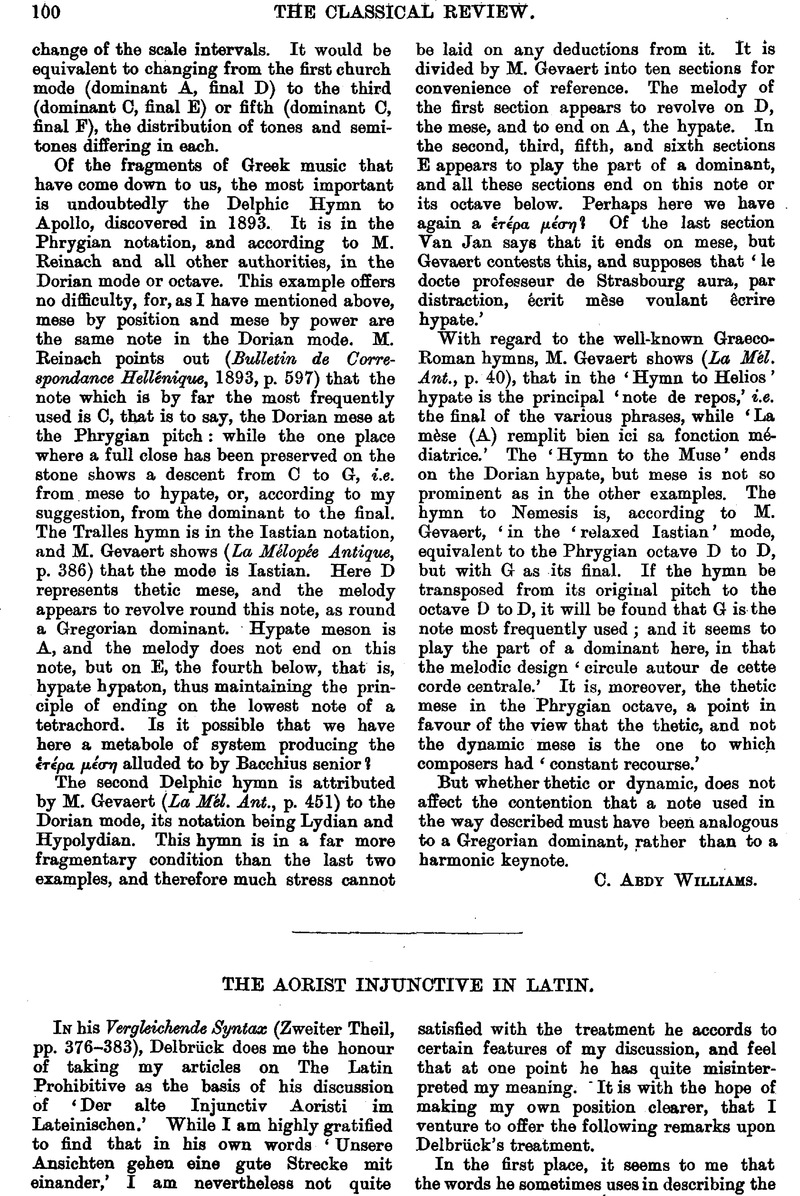No CrossRef data available.
Article contents
The Aorist Injunctive in Latin
Published online by Cambridge University Press: 27 October 2009
Abstract

- Type
- Original Contributions
- Information
- Copyright
- Copyright © The Classical Association 1898
References
page 102 note 1 I say only ‘fairly well’ for the reason that some might insist on regarding ‘be gone !’ as a perfect instead of an aorist. But in either case the expression serves the purpose for which I have used it, as all idea of progress is eliminated from the thought. As applied to the future, the perfect and the aorist resemble each other in that they both alike include the end of the act; they differ in that the perfect represents it as one to be performed prior to a future time, the aorist represents it as one to be performed in its entirety (the end of the act being therefore included) at a future time with no idea of priority. But as the idea of completion, or accomplishment, is common to the two tenses, the expression ‘be gone,’ however it is explained, is sufficiently apropos. That the perfect and the aorist conceptions approach each other under certain circumstances, is shown by the facts that a Greek aorist seems often best translated by an English perfect and that both tenses are in Latin represented by the same form. In si uenerit, uideat, the uenerit is a perfect subjunctive; in ne ueneris, the ueneris is an aorist.
page 103 note 1 Bennett, Latin Grammar § 276, and Appendix § 358 d. ; Gildersleeve-Lodge, Latin Grammar § 272, 2, Remark, and Gildersleeve, in the American Journal of Philology, vol. xviii. 1, p. 123; Schmalz, in the Berliner Philologische Wochenschrift for June 20, 1896, column 794 ; Sonnenschein, in his review of Gildersleeve's grammar, Classical Review, vol. x., No. 1, p. 64 ; Ziemer, in the Wochenschrift für Klassische Philologie for April 22, 1896, column 459 ; and apparently Golling in the Zeitschrift für die oester. Gymnasien for 1895, column 1074. The correctness of my conclusions is further acknowledged hy Hey in the Archiv für Lot. Lexikographie u. Grammatik for 1895, hy Giles in A Short Manual of Comparative Philology, p. 439, note, and hy Buck in The Osean-Umbrian Verb System (University of Chicago Studies in Classical Philology, vol. i. p. 140).


